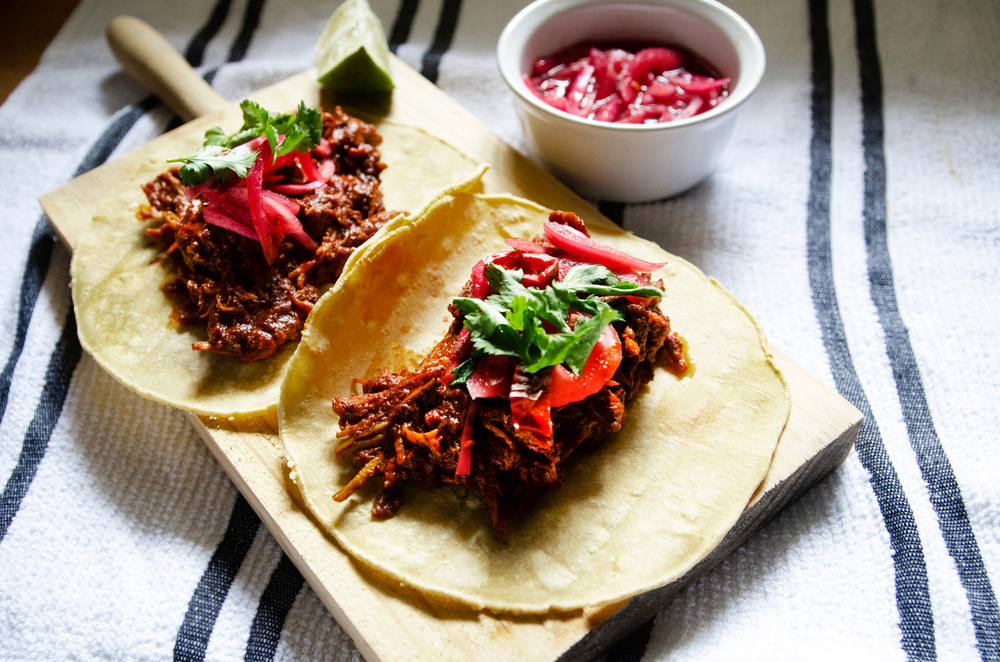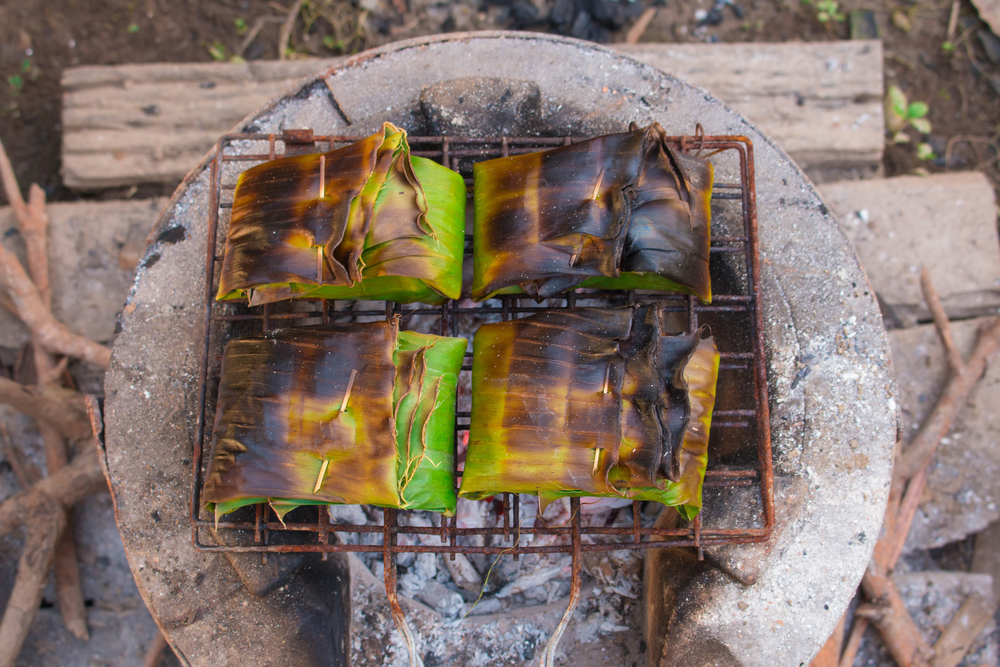Cochinita Pibil
Cochinita means “suckling pig,” and pibil derives from the Mayan word pib, meaning “roasted in a pib.” A pib is a pit with a fire at the bottom where food is cooked. Therefore, pibil is a cooking technique, of pre-Hispanic origin, that was used to roast deer, pheasant, or wild boar before the Europeans imported pigs. As other indigenous populations around the world, Mayans also used this cooking method in which stones are heated and then, after the pieces of meat are placed, they are covered with leaves to protect the food from dirt and catch the heat. Today a grill can be used in place of a pib.
Recipe Servings: 4–6
Prep Time
45 minutes
+ 1 minute resting
+ 1 minute resting
Cook Time
5 hours 15 minutes
Total Time
6 hours 1 minute
Vegetarian
Vegan
Gluten Free
Dairy Free
Kosher
Halal
Ingredients
- 1 whole head garlic, separated into individual unpeeled cloves
- 2 Tbsp (30 ml) lard
- ¼ cup (40 g) achiote (annatto) seeds
- 2 Tbsp (30 ml) oregano
- 3 whole cloves
- 1 3-in (7.6-cm) cinnamon stick
- 2 Tbsp (30 ml) whole black peppercorns
- 1 Tbsp (15 ml) whole cumin seed
- 1 Tbsp (15 ml) whole allspice berries
- ¾ cup (175 ml) bitter orange juice, or ¼ cup (60 ml) each lime, orange, and grapefruit juice
- ¼ cup (60 ml) white vinegar
- 1 Tbsp (15 ml) soy sauce
- Kosher salt, to taste
- 4 lbs (1.8 kg) boneless pork shoulder or 6 pounds (2.7 kg) bone-in pork shoulder, cut into 2-in (5-cm) thick slabs
- 6–8 banana leaves
- 2 Roma tomatoes, sliced
- 1 red or green bell pepper, sliced
- 1 white onion, sliced
- 12 bay leaves
- Warm corn tortillas
- Pickled red onions, for garnish
- Cilantro, for garnish
Directions
- To prepare the marinade, put the garlic cloves in a dry skillet over high heat. When blackened, remove from skillet, let cool, and peel the skins.
- In a medium pan, heat the lard over medium heat. Add achiote, oregano, cloves, cinnamon, black peppercorns, cumin, and allspice. Stir and cook for about 2 minutes. Transfer to a blender.
- Add the peeled garlic, bitter-orange juice (or lime-orange-grapefruit combination), vinegar, soy sauce, and salt to taste. Blend until smooth.
- Pour marinade over meat; cover and refrigerate for an hour or up to overnight.
- Put one piece of pork in the center of two or three overlapping banana leaves with some of the tomatoes, bell pepper, onion, and bay leaves. Make a parcel and tie with cooking twine. Place on a baking pan. Repeat this procedure with the remaining pork and banana leaves.
- Preheat grill for 5–10 minutes. Place baking sheet on the side opposite the fire and close grill lid. At a temperature between 250º and 350ºF (130–150ºC), smoke the pork inside the chamber for 4–5 hours.
- When ready, transfer parcels to a plate and unwrap banana leaves. Stuff pork filling into tortillas and garnish with pickled red onions and cilantro.
Notes
In Yucatan, where this dish originated, pheasants and other wild animals that were once used in this preparation are now endangered. Beef, pork, and poultry are substitutes today.Copyright © 1993—2024 World Trade Press. All rights reserved.

 Mexico
Mexico 
